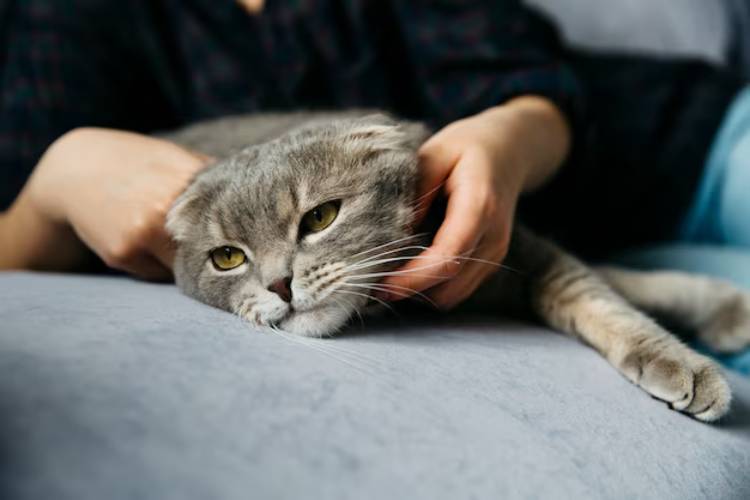Deciding when to euthanize a cat with seizures is one of the hardest decisions any pet owner can face. Cats experiencing seizures can undergo a significant decline in their quality of life, leaving their owners to grapple with the difficult choice of when to consider euthanasia. Understanding seizures in cats, their causes, and when euthanasia might be the most compassionate option is crucial. In this guide, we aim to help you navigate through every step of this emotional journey with empathy and support.
Understanding Seizures in Cats
Seizures in cats can vary greatly in terms of frequency and severity. Recognizing the symptoms early and identifying the underlying causes is essential in managing your cat’s health.
What Causes Seizures in Cats?
Seizures may occur due to various factors, such as brain tumors, infections, epilepsy, or trauma. In some cases, the exact cause may remain unknown, making treatment options difficult. Common causes of seizures in cats include:
- Brain tumors: These can disrupt normal brain function, leading to frequent or severe seizures.
- Epilepsy: A common neurological disorder that can cause seizures in cats without any apparent cause.
- Trauma or injury: Head trauma may lead to seizures, especially if the cat has suffered a severe injury.
- Infections: Bacterial or viral infections affecting the brain can trigger seizures.
Common Symptoms and Impact on Quality of Life
When a cat experiences seizures, it can be alarming. Symptoms may include sudden loss of consciousness, twitching, convulsions, and disorientation. These symptoms, especially if they become frequent or severe, can significantly diminish a cat’s quality of life. A cat’s health deteriorates when seizures occur frequently, leaving them unable to enjoy daily activities.
When to Consider Euthanizing a Cat with Seizures
As a pet owner, deciding to euthanize a cat with seizures is never easy. It’s essential to assess the cat’s quality of life and make an informed decision with the help of your veterinarian.
The Decision to Euthanize: What to Look For
When seizures become frequent or severe, and when medication or treatment no longer controls them, it may be time to consider euthanasia. Signs that it may be time to euthanize your cat include:
- Persistent pain and suffering: Your cat may show signs of discomfort, confusion, or distress during and after seizures.
- Inability to control seizures: When treatment options are no longer effective, the decision to euthanize becomes more compassionate.
- Loss of enjoyment: If your cat no longer engages in activities or experiences distress most of the time, euthanasia may be the kindest choice.
Evaluating Your Cat’s Quality of Life
Your veterinarian can help assess your cat’s quality of life by evaluating their physical and mental state. Questions to consider include:
- Is your cat still able to enjoy activities such as eating, grooming, and interacting with you?
- Are the seizures causing prolonged periods of suffering or distress?
- Has your cat’s overall behavior changed due to the frequency and severity of the seizures?
The Role of Your Veterinarian in Making the Decision
Veterinary care plays a critical role in helping you make the best decision for your beloved pet. Your veterinarian will guide you through understanding your cat’s condition, explaining treatment options, and discussing the right time to consider euthanasia.
Treatment Options vs. Euthanasia
Before making the difficult decision to euthanize, it’s important to explore all available treatment options for your cat’s seizures.
Available Treatment Options for Seizures in Cats
Treatment options for seizures in cats may include:
- Medications: Anti-seizure medications can help manage the frequency and severity of seizures in many cases.
- Surgery: In cases where a brain tumor is causing seizures, surgery may be an option.
- Holistic approaches: Some pet owners opt for holistic treatments, such as acupuncture or diet changes, to control seizures.
When Treatment No Longer Works: Time to Consider Euthanasia
When treatment options fail to improve your cat’s condition, and their seizures become more frequent or severe, euthanasia may be the kindest choice. It’s essential to allow yourself time to grieve and honor your cat’s memory by making an informed, compassionate decision.
Compassionate Care and Support During This Difficult Time
Losing a beloved pet is a heart-wrenching experience. However, there are ways to ensure your cat is honored and that you have the support you need.
How to Honor Your Cat After Euthanasia
After deciding to euthanize your cat, you can honor their memory in various ways:
- Memorial services: Some veterinary centers offer memorial services to commemorate your pet’s life.
- Keepsakes: Consider creating a keepsake, such as a paw print, to remember your cat by.
- Donation: You may choose to make a donation to an animal charity in your cat’s name.
Finding Support for Pet Owners
During this challenging time, it’s important to allow yourself to seek support from friends, family, or support groups. Many veterinary centers, such as the Taconic Veterinary Center and Arrowhead Animal Hospital, provide grief counseling and resources for pet owners facing the loss of their pets.
Conclusion:
Making the decision to euthanize a cat with seizures is never easy. However, by evaluating your cat’s quality of life, consulting with your veterinarian, and considering all treatment options, you can make the best decision for your cat’s comfort and peace. Remember, it’s okay to allow yourself time to grieve and honor your cat’s memory after making this difficult choice.
Frequently Asked Questions:
What causes seizures in cats?
Seizures in cats can be caused by various factors, such as brain tumors, infections, epilepsy, or trauma. In some cases, the cause may remain unknown.
How do I know it’s time to euthanize my cat with seizures?
It may be time to consider euthanasia if your cat’s seizures are frequent, severe, and no longer responsive to treatment, significantly affecting their quality of life.
What role does my veterinarian play in making the decision to euthanize?
Your veterinarian will guide you through the decision-making process by assessing your cat’s condition, discussing treatment options, and providing compassionate advice when euthanasia is the most humane option.







